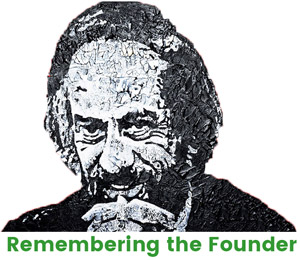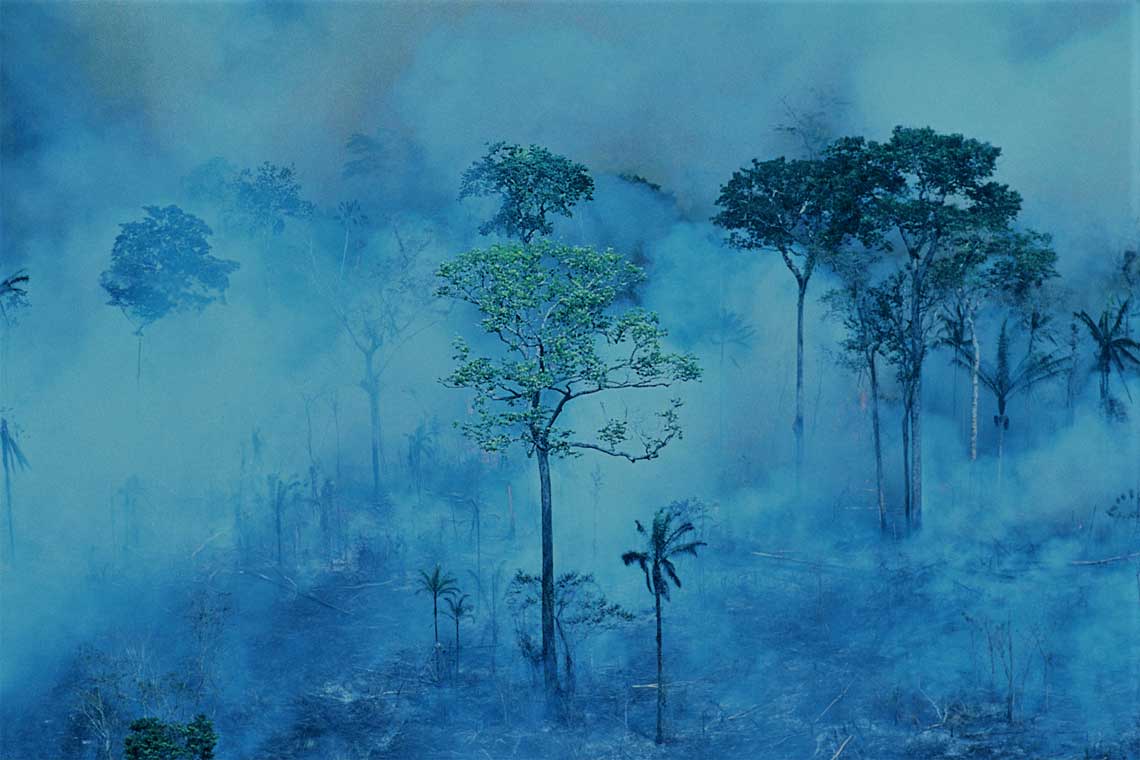Key messages >>>
- Amazon Fires are a result of the imbalances created by human interference in the natural ecosystem. Brazilian government’s response to wildfire has been of denial and prioritizing of the business interests.
- Though the international criticism of the negligence of the Brazilian government has been harsh, it has hardly resulted in any meaningful action in the future preservation of the Amazon rainforests.
- International law in line with the ‘Global Common’ and ‘Crime Against Humanity’ should be considered to deal with such systemic and deliberate actions by governments/leaders, causing global environmental catastrophe and harm to the lives of millions, both inside and outside the national boundary.
Amazon rainforests inhabit most diverse flora and fauna in the world in terms of size and overall climatic impact. These are also a home to various indigenous tribes who not only derive livelihood from these forests, but also a sense of identity and culture. However, this very wealth of nature makes Amazon immensely vulnerable to the modern greed that manifests in the form of nexus between vested political and economic interests, a result of which are the Amazon Fires, which went on for more than a month to the shock of climate activists and general public all over the world. Though Brazil’s environmental minister Ricardo Salles blamed the fires on the dry weather with wind and heat, the scientific evidence points to ‘human induced’ factors, most important of which is the increasing clearing of land by cattle ranchers and loggers for agricultural gains. In fact, Amazon rainforests have played a critical role in the electoral politics of Brazil, having very clear global implications.
National Politics on Amazon Rainforests
Deforestation has been problem in Amazon since quite a long time, and while some efforts were underway to curtail it, the massive election win by Rio de Janeiro congressman Jair Bolsonaro in 2018 got rid of all those priorities. Instead, Bolsonaro opened the Amazons to the ranchers to create more space for cattle grazing following his election slogan “bulls, bullets, and bibles”. Deforestation is further rising thanks to the huge profits it generates and the Brazilian government seems to be doing very little to stop it. Illegal mining and land speculation linked to deforestation is, as per the evidence, being done by the mafia in collusion with the government. The problem lies at the heart of a development model that is rooted in ‘maximum exploitation of natural resources’. And a shift to authoritarian or strongman leadership removes all the barriers that can come from the opposition to avert such decisions. Brazil First policy, touted by Bolsonaro, on the lines of Trump’s America First is symptomatic of the inward looking nationalism of the 21st century growing against climate crisis that requires a feeling of global citizenship.
This national pride deterred Bolsonaro from even accepting that Amazon has been on fire to a point of global emergency, until action was finally taken when army was deployed in the area in line with the Guarantee of Law and Order Operation (GLO). Despite all the efforts by the government, it was the indigenous tribes of Amazon who emerged as the most active and sincere army of people trying to put down the fire based on their rich traditional knowledge and intellectual heritage.
International Reaction
As the international backlash on Amazon Fires was unanimous, Cristiana Paşca Palmer, the executive secretary of the UN Convention on Biological Diversity, in particular, called out for a fresh approach to prevent the continuing damage to ecosystems that might destroy them to the point of no return and the destruction of Amazon is a grim reminder of that reality in progress. G7, on the other hand, pledged $20m to put down Amazon fires and the French President, Emmanuel Macron announced to create an international alliance to save the Amazon rainforests. In an another step, seven South American countries, Bolivia, Brazil, Colombia, Ecuador, Guyana, Peru and Suriname, signed a pact to set up a disaster response network and satellite monitoring to protect Amazon forests. Following a summit in Colombia, all these countries also decided on to reforest the Amazons.
Despite all the international outrage on Amazon Fires, it is unfortunate that Brazilian government has recently allowed sugarcane farming in the Amazon. A 10 years old regulation that prohibited sugarcane farming in Amazon and in areas reserved for indigenous people has been conveniently annulled by Bolsonaro to entertain the business interests. These developments raise the question of the political status of Amazon forests and the role international community should play in its protection against the exploitation by the national government.
A Case for Amazon Rainforests as a Global Common
Amazon forests are the lungs of the planet providing 20 percent of global supply of oxygen and yet the preservation of these forests falls under the whims and fancies of an authoritarian leader. An answer to such a predicament can be the idea of ‘global commons’, which is usually defined as those resources of the Earth that fall outside national jurisdiction and all nations have access to these resources. Four global commons that have been identified by the international law are the High Seas, the Atmosphere, the Antarctica and the Outer Space. Attributing the status of global common to Amazon rainforests will allow the application of legal and institutional frameworks for their protection, examples of which are, United Nations Convention on the Law of the Sea, the Antarctic Treaty Systems, and the UN Environment’s Regional Seas Conventions and Protocols etc. Such a step would lead to the consideration of international public opinion while taking decisions on the Amazon as per national jurisdiction; in favor of right to live and a livable environment for all.
Also to be considered is the fact that this deliberate extermination of Amazon rainforests can fall under ‘crime against humanity’ which in its definition in the Rome Statute of the International Criminal Court, includes “inhumane acts that intentionally cause great suffering, or serious injury to body or to mental or physical health”. Destruction of an essential ecosystem can be contextually interpreted as large-scale systemic violence against a number of victims over a broad geographical area.
Environmental damage poses a non-traditional threat causing misery and assured slow death to millions, yet rarely any legal battle is fought against it within the procedures of international criminal legal system, especially against governments. While the international power politics may discourage the application of these laws to powerful leaders, nonetheless, the public opinion created by the application of soft laws and shaming of the individuals in authority, can put indirect pressure resulting in some form of action or in other case, create a negative public image. Catastrophes of such a scale can eventually be addressed only through a combination of soft law and hard law in the international legal system. Crucial questions remain: Can and will the global community take any further step beyond condemnation?



